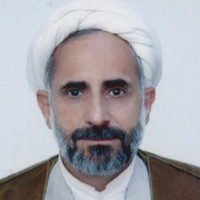God and Hell Talking, Reality or Allegory
Abstract:
According to the Holy Quran, after sentencing the guilty on Day of Judgment, Hell is asked whether it still remains a place to settle infidels and aliens. Hell answers: does it remain any guilty? Three comments have been presented in this case: Some commentators have seen this verse as a kind of metaphor and non-verbal language that God asks from Hell in the language of Genesis and Hell answers in that language; some others believe that the hereafter is the abode of life and a real life and Hell also has of life and intelligence and the problem is the answer. In addition to these ideas, some commentators believe in removing the determining noun in this regard and say that God addresses the clients of Hell and God wants them to admit. Expressing the documents and the reasons of these ideas of and reviewing them, this article has concluded that the second view has to be preferred and must be committed to the functions of the first theory, because the verse with this FAQ wants to point out that surrounding of Gods anger and punishment to all the criminals do not fall short and believing in actuality of the verse also provides the allegorical claims. Therefore, as long as there is not any acceptable and strong reason for disregarding the literary meaning of the verse, it should not be turned away.
Keywords:
Language:
Persian
Published:
مجله آموزه های قرآنی, Volume:13 Issue: 23, 2016
Page:
151
https://magiran.com/p1593222
سامانه نویسندگان
مقالات دیگری از این نویسنده (گان)
-
The Disclosure of Happiness to Ṣadrian Human
Bibi Bahareh Fakooe Yahyayi *, Seyed Morteza Hosseynu Shahrudi
Islamic Philosophy & Theology, -
The Study of al-Ḥākim al-Nīshābūrī's Virtue Writing on Lady Fāṭimah (AS) Based on Critical Discourse Analysis Theory
Sayyid Reza Mahdavi, Morteza Iravani Najafi *, Hasan Naqizadeh
Hadith Studies and Researches, Winter 2025 -
A Critical Review of the Interpretive Rules in Ibn ‘Uthaymīn’s Interpretive Method
Sayyed Mahdi Elmi Husayni, Hasan Naqizadeh *, Muhammadhasan Rostami
Qur'anic Researches, -
Investigating and analyzing the effect of the issue of emanation in the philosophy of Plotinus in Farabi s thought and Farabi's innovations in it
Mohammad Haghighi Rad, Mohammadkezem Elmi Sola *, Sayyed Mortaza Hosseini Shahrudi
Journal of Explorations in Philosophy of Religion,



